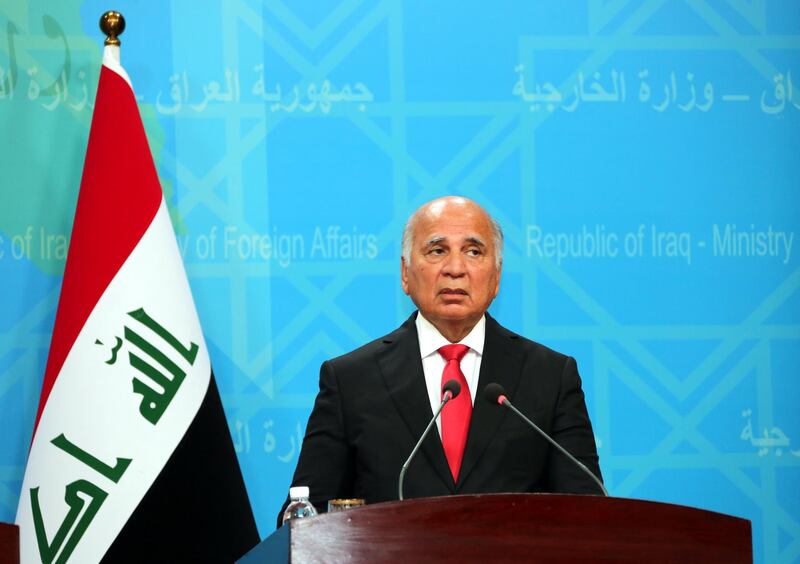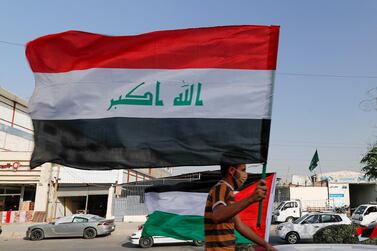The EU will send election observers to Iraq to monitor October’s polls as Europe seeks to ensure stability in the country.
EU foreign policy chief Josep Borrell made the announcement after Iraq's Foreign Minister Fuad Hussein held talks with his European counterparts at a summit on Monday where he won support for Iraq's efforts to mediate in the Middle East.
Describing Iraq as “extremely important for the whole region”, German Foreign Minister Heiko Maas said it was vital for leaders in Baghdad to win a democratic mandate as they sought to reform Iraq’s economy.
“This government or any incoming government will need a high degree of legitimacy from this election, which means it will need to be carried out under international standards,” he said.
Germany said it was willing to participate in the observer mission that Mr Borrell announced would monitor the elections on October 10.
“The country continues to face severe challenges,” Mr Borrell said.
“They are undertaking comprehensive reform but the economic and security situation remains a critical issue.”
New elections were a key demand of Iraqi protesters who staged major anti-government protests beginning in late 2019.
Mustafa Al Kadhimi became Iraq’s Prime Minister in May last year with a mission to guide the country towards the new elections that are now scheduled for October.
Mr Maas praised the reform plans unveiled by Mr Al Kadhimi's government in a white paper last year that set out a vision for a revamped economy.
“Iraq’s government has great reform ambitions. The prime minister’s white paper absolutely goes in the right direction,” he said.
“Iraq has conducted a balanced foreign policy and mediates between Tehran and Riyadh and also with other Gulf states.
“It is important that Iraq continues this course and we give our Iraqi colleagues our united support for this.”
Migration issue
Meanwhile, Greek Foreign Minister Nikos Dendias raised the issue of illegal migration in his talks with Mr Hussein.
The intervention was welcomed by EU member Lithuania, which is sheltering hundreds of migrants from Iraq.
Lithuania accused its neighbour Belarus of weaponising migration flows by bringing dozens of refugees to the border in recent days.
The summit ended on Monday with new sanctions against Belarus aimed at increasing pressure on the country’s President Alexander Lukashenko.
Measures against Mr Lukashenko have ratcheted up since he claimed victory in a disputed election last year and launched a clampdown on opposition figures.
But the EU has taken a harder line since Belarus arrested an opposition journalist last month after forcing his Ryanair plane to land in Minsk.








